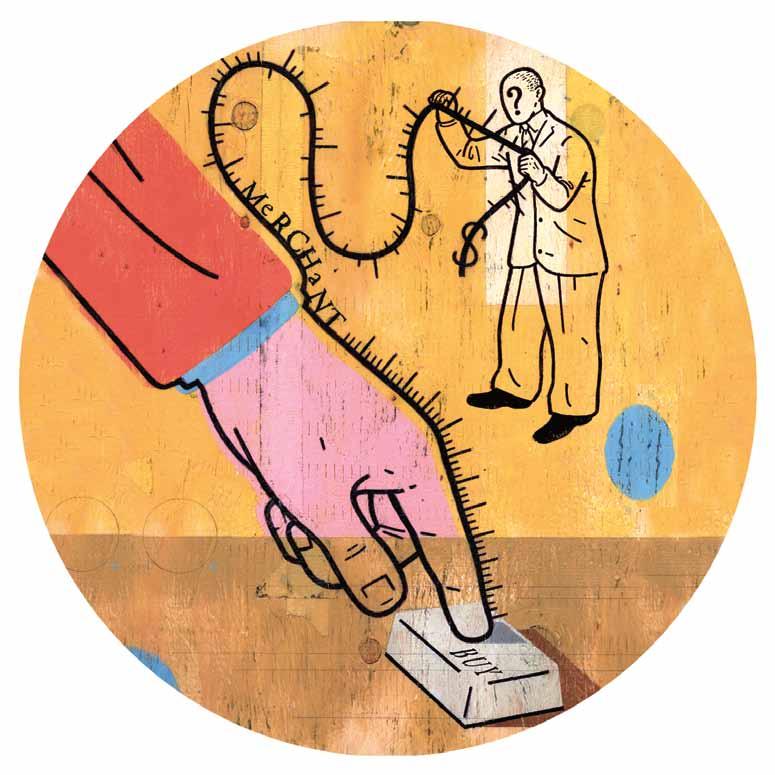
6 minute read
Faculty Research
Measuring the REIT Stuff
DOES A HOTEL OWNED BY A Real Estate Investment Trust (REIT) perform better than a non-REIT hotel? Does REIT ownership add value at an individual property level? Limited prior research on the topic has been inconclusive. In collaboration with fellow VSB professors Shelly Howton, Shawn Howton, and Johnny Lee, Assistant Professor of Finance Mi (Meg) Luo re-examined these questions and arrived at an affirmative response.
Other research that has investigated the impact of REIT ownership on property performance focused on revenue-based performance measures. Luo and her co-authors, however, approached this issue using a unique dataset of detailed accounting information for individual hotels across five states. Their expansive dataset differed in that it enabled them to examine both top-line and bottomline performance of hotel operations. The team of professors used this evidence to conclude that REIT ownership favorably impacts property performance and that REIT-owned hotels have higher profit margins.
Luo’s research has been published in the Journal of Financial Economics, the Journal of Corporate Finance, and the Journal of Internet Commerce. She earned her PhD in finance from the University of Utah and a BS in finance at Nanjing University in China. Her research interests include executive compensation, cash management, and dividend policy. In 2008, she received the Villanova Summer Research Grant.
People don’t leave bad companies. They leave bad managers.
FAIR TREATMENT IN THE WORKplace is something employees value and managers strive to provide. However, the perception of fairness may differ between employees and managers, and this variance can have negative repercussions on employee morale, effectiveness, and retention.
VSB Professor of Management Quinetta Roberson, PhD, an academic expert on diversity in Fortune 500 companies, examines the topic of fairness perceptions in the workplace in her paper, “Justice as a Dynamic Construct,” which recently was published in the Journal of Applied Psychology. To gather data for this paper, Roberson surveyed 523 working adults four times over the course of a year about their perception of fairness in the workplace. This research led Roberson and her co-authors to discover a flaw in typical corporate management: although most supervisors like to think they are good managers, many of them fail to understand what their employees really want or know how to address their concerns about being treated unfairly.
Roberson’s research has been published in the Academy of Management Journal, Organizational Behavior and Human Decision Processes, Academy of Management Review, and Organizational Research Methods. In 2007, Group & Organization Management awarded her the Best Paper Award. Roberson has served on the editorial boards of various journals and currently is associate editor of the Journal of Applied Psychology.
Clipping Groupon’s Earnings
THOUSANDS OF DEAL- HUNGRY consumers visit Groupon.com to buy daily discounts on local and national products and services. Theoretically, when a customer purchases a deal through this website, Groupon and the retailer split the profit equally, but Groupon has been reporting the entire amount of the purchase—twice their actual revenue—as fully their own, raising serious concerns about the reliability of their accounting practices.
VSB Accounting Professor Anthony Catanach’s research brought light to this and other significant problems with Groupon’s S-1 filing with the U.S. Securities and Exchange Commission (SEC). Catanach shows that Groupon, in preparation for an IPO, considerably overstated revenues on income statements. Rather than reporting revenues on a net basis, which would have been the proper format for a company of this type, Groupon instead reported revenues on a gross basis. According to Catanach, Groupon failed to follow generally accepted accounting principles and did not conform to specific requirements set forth by the Emerging Issues Task Force.
Catanach’s revealing research caught the attention of the media and of the SEC, which ultimately intervened and compelled Groupon to restate its revenue.
Catanach’s work has appeared in BNET, CNN Money, Forbes, The Economist, and the New York Times Deal Book. He also has been interviewed on Bloomberg West, as well as on CNBC’s Street Signs and Fast Money shows.
Catanach’s academic research has appeared in Accounting Horizons, Advances in Accounting, the Journal of Managerial Issues, and Research on Professional Responsibility and Ethics in Accounting. He has won several Best Paper Awards and received the first-ever Cary M. Maguire Fellowship in Applied Ethics from the American College Center for Ethics in Financial Services. Catanach also is the co-editor of the Grumpy Old Accountants blog.

Brand New Day
BRANDS ARE PEOPLE, TOO. SO say marketing professors Aronté Bennett and Ronald P. Hill.
In 2010, the Supreme Court ruled that corporations are entitled to the same rights granted to citizens in the U.S. Constitution. Following this decision, Hill, Bennett, and co-authors Susan Fiske and Nicolas Kervyn of Princeton and Chris Malone of the Relational Capital Group, decided to use the Stereotype Content Model (SCM) to study whether consumers relate to branded goods and services in ways that mimic interpersonal interactions. They found the Supreme Court ruling extends to another conclusion: if corporations are people, so are brands. Researchers have used SCM for more than a decade to illustrate that individuals appraise one another on perceived warmth and competence. The warmth dimension is based on the intentions of another person. Positive intent suggests helpfulness, sincerity, and friendliness. The competence dimension is based on the ability of this person. Able people are assessed as efficient, intelligent, and skilled.
Together these factors create four groups that position people as eliciting pity (warm/ incompetent); admiration (warm/competent); contempt (cold/incompetent); and envy (cold/competent).
Bennett, Hill, and their co-authors draw parallels between the High Court’s ruling and recent evidence that SCM is applicable to goods and services, and that consumers go through this same evaluative process when responding to brands. Along with the elderly and disabled, brand names such as Amtrak and Postal Service elicit pity, suggesting an implicit recognition of the need for support for survival. Brands and social groups that are perceived as having done wrong arouse feelings of contempt, such as BP following the Gulf oil spill. Consumers admire brands and people that are seen as embodying desirable traits, such as CocaCola and McDonalds. Luxury brands, like Porsche and Rolex, are envied by consumers who perceive them as having attained distant levels of prestige.
Professor Hill is the editor of the Journal of Public Policy & Marketing and holds editorial positions with the Journal of Consumer Affairs and the Journal of Macromarketing. His research has been published in these journals and others, including the Journal of Consumer Research, the Journal of Marketing Research, and the Journal of the Academy of Marketing Science. Hill won the 2010 Richard W. Pollay Prize from the Sauder School of Business at the University of British Columbia, a lifetime achievement award given annually to recognize intellectual excellence in the study of marketing in the public interest.
Professor Bennett’s research has been published in International Marketing Review. She received her PhD from the Leonard N. Stern School of Business at New York University and was awarded an Aspen Institute Research Fellowship in 2009. Prior to joining VSB, Bennett was an instructor at the Stern School of Business, where she completed a Master of Philosophy and a pre-doctoral program in marketing. Bennett also earned her BSBA and an MBA with a concentration in marketing from the Florida Agricultural and Mechanical University.










